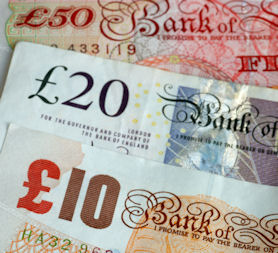Capital gains tax hike will test coalition government's 'progressive' credentials
Updated on 28 May 2010
As David Cameron defends plans to raise capital gains tax, Tony Dolphin of the Institute for Public Policy Research tells Channel 4 News it will be a test of the new government's claim to be "progressive".

Prime Minister David Cameron today defended the coalition government's plans to raise capital gains tax to a level closer to the 40 per cent income tax rate.
This week's Queen's speech pledged the introduction of new CGT rates "similar or closer to those applied to income".
In a question and answer session after his first major speech as prime minister, he insisted the move, which could be introduced in the emergency budget in June, aimed to help poorer households.
Mr Cameron said: "The opportunity there is (...) is to find some modest additional revenue through capital gains tax to actually lift people out of income tax altogether by raising the income tax threshold."
Liberal Democrat Business Secretary Vince Cable endorsed the prime minister's view. He told a gathering in West Yorkshire: "We want fair taxes for individuals and we want strong support for entrepreneurs."
But the new government's pledge to raise CGT from its current 18 per cent rate - agreed as part of the coalition deal between the Tories and the Liberal Democrats - is causing some unrest among Conservative faithful.
CGT is an unusual tax because the taxpayer can usually choose when to sell and trigger the liability.
But the fact is that a low rate tends to discourage CGT avoidance and encourages people to sell rather than to hang on to their asset.
Property investor David Kibel told Siobhan Kennedy he had no problem paying his fair share of tax, but he thought it was the lower end of the population who would be hit by any CGT increase.
At present, the first £10,000 of profit someone makes from the sale of, for example, a property, are tax free. Thereafter people pay 18 per cent.
The two most vocal Conservative backbench opponents to the government's plans are John Redwood and David Davis. Like David Kibel, they argue that the new rate will hit lower- and middle-income earners.
Discussion: economist Tony Dolphin and strockbroker John Hall
John Hall, former chief executive of Brewin Dolphin Ltd, told Krishnan Guru-Murthy he wanted to see a fair tax, for the right reasons.
He said: "It would be very unfair to tax the savers, the ordinary savers, who people like myself have spent their life trying to advise to invest sensibly and plan for their future, to suddenly increase by a swingeing amount the capital gains that they're faced with."
Tony Dolphin, of the Institute for Public Policy Research, responded by asserting that it was unfair that capital gains was taxed at a different rate from income.
He maintained that such an arrangement "creates an incentive to switch what potentially is income into the capital gains to they can lower their tax bills".
John Hall countered that there were up to four million people in the UK who owned shares and that the number of people likely to be "caught" by the revised CGT level depended entirely on where the limits were set.
He agreed with the notion that, because the country has a massive bill to pay, the rich had to "pay their fair share".
But he pointed out that capital gains was voluntary. There was "overwhelming evidence" that the tax take on capital gains is greatly increased on a reduction.
Tony Dolphin agreed that the tax take goes down when CGT goes up - in cases where the rate has been changed frequently up and down.
But he thought it unlikely that CGT in this country would follow such a pattern in the next few years and that, if there is a hike, it would be around for at least a decade.
He concluded: "The revenues may dip in the short term, because people are presumably trying to get the capital gains out now, before 22 June."
A test of the government’s 'progressive’ credentials'
It is fundamentally unfair to tax income and wealth differently, writes Tony Dolphin, senior economist with the Institute for Public Policy Research.
When there is too big a gap between income tax rates and capital gains tax rates – as there is now for high earners – there is an incentive for people to convert income into capital gains in order to reduce their tax bills.
It is not right that the very rich can do this while everyone else pays income tax at their designated rate. In 2007, private equity boss, Nicholas Ferguson, hit the headlines when he agreed that it was unfair that he paid a lower tax rate than his cleaner.
It is clear taxes have to be increased and putting up capital gains tax rates, which will only affect the wealthiest members of society, is better than most of the alternatives. Whether or not the government sticks to its proposal will be a test of its claims to be "progressive".
Claims that this move will hit millions of people are wrong. In 2007-08 (the latest data available) fewer than 100,000 people with taxable incomes high enough to pay income tax at 40 per cent realised capital gains above the annual exempt amount for capital gains tax.
Similarly, it is wrong to say that this move will create havoc with people’s long-term financial planning - the government only proposes to restore the position that existed prior to April 2008.

